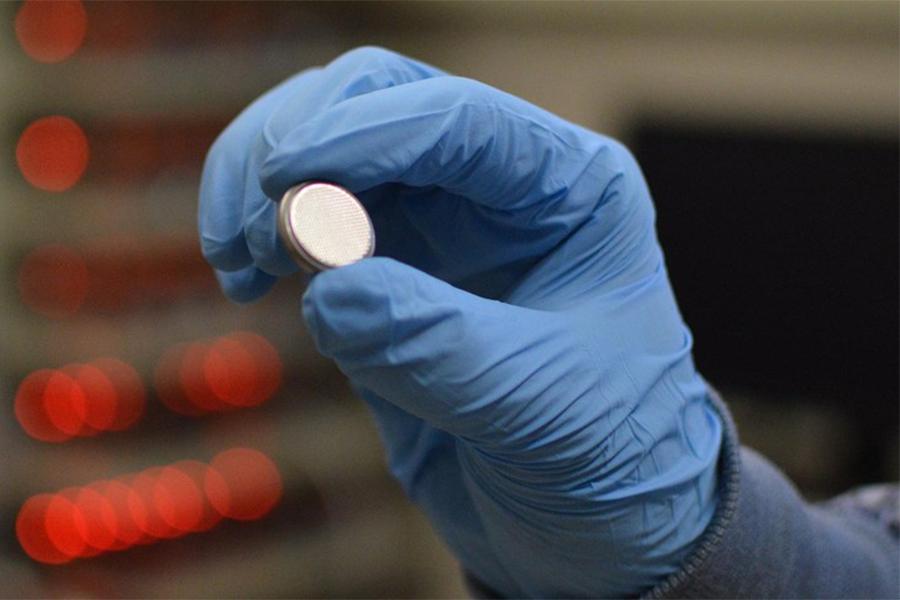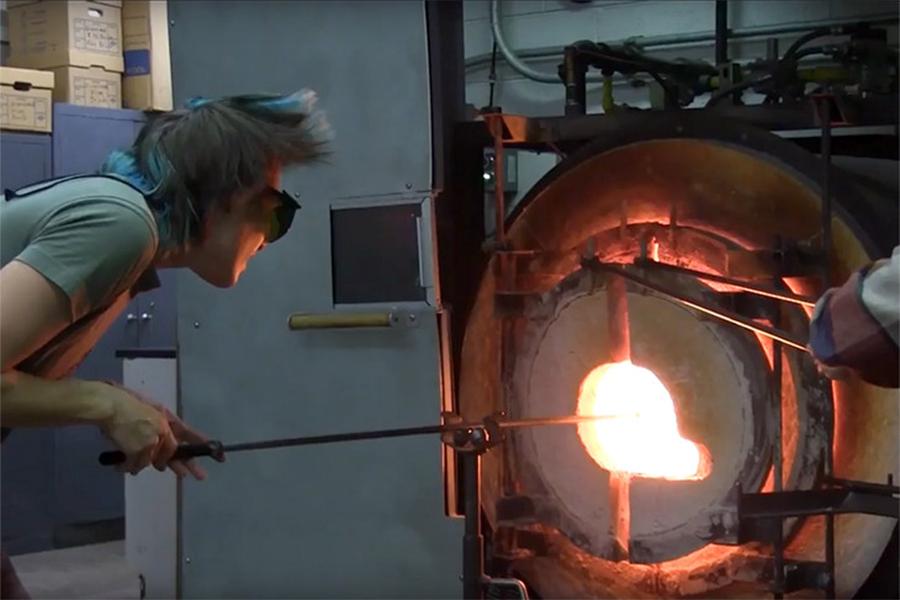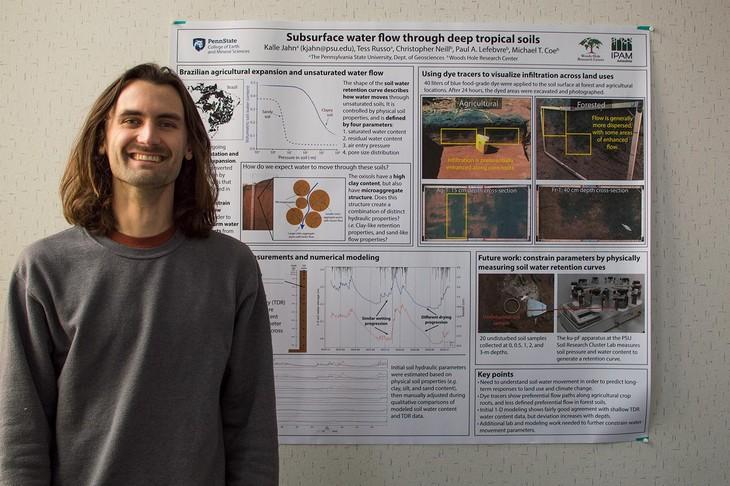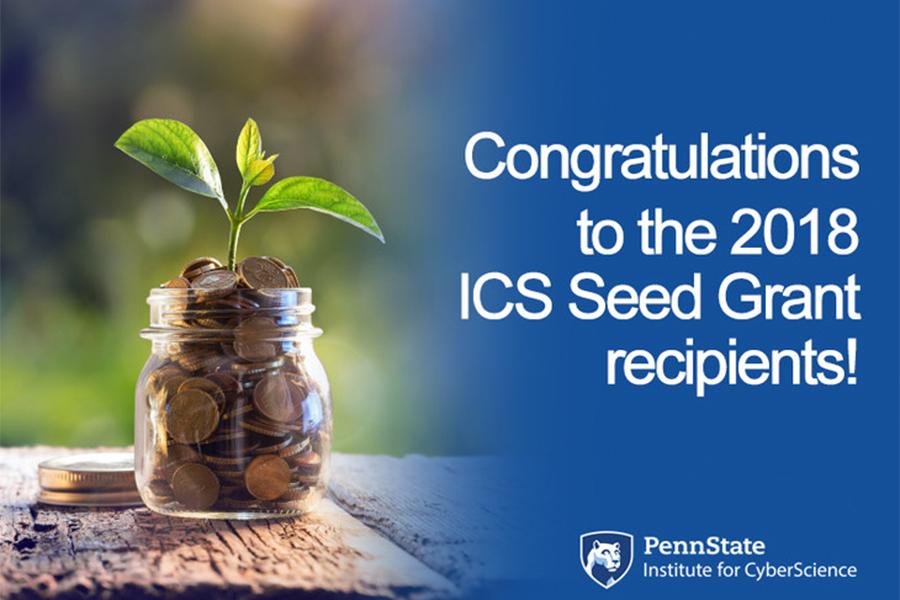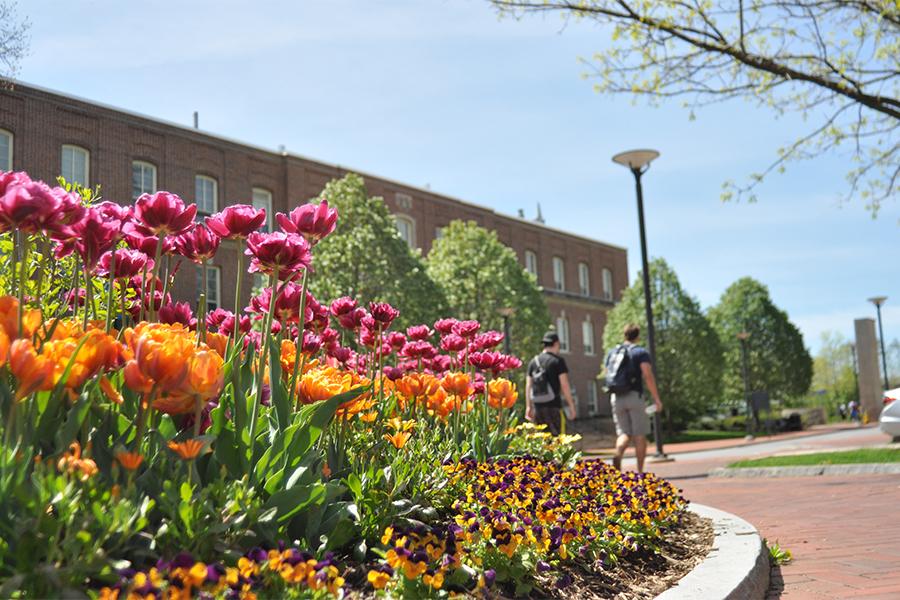A newly discovered structure of a sodium-based material allows the materials to be used as an electrolyte in solid-state batteries, according to researchers from Penn State and Pacific Northwest National Laboratory (PNNL). The team is fine-tuning the material using an iterative design approach that they hope will shave years off the time from research to everyday use.
Students and faculty in Penn State’s Material Sciences and Engineering Department can take the heat when the furnaces are blazing in Penn State’s glass-blowing studio.
Batteries, earthquakes, Earth science modeling, water flow and natural gas leakage — these are the research topics of the five graduate students in the College of Earth and Mineral Sciences who received honors in Penn State's 33rd annual Research Exhibition.
As a first-year student, Mensch was confident that she wanted to advocate for a cause. She decided to attend the night-time Luminaria Ceremony at Relay For Life. At the ceremony, luminaria bags line the walkways lit with candles, honoring those who have suffered or are suffering from cancer. She had her “this is it” moment and decided to get involved. Gradually, she assumed more leadership and held positions like the EMS Relay For Life chairperson, Greek recruitment overall, ultimately becoming the executive director in her senior year.
Penn State was approved to be a new chapter of a science-based program, called EnvironMentors, which aims to bring underrepresented students into the fields of science, technology, engineering and math (STEM).
Contemporary artist and activist Morehshin Allahyari will explore political, social and cultural contradictions in a lecture titled “On Digital Colonialism and Monstrosity” at 10 a.m. on April 6 in the Paterno Library's Foster Auditorium on the University Park campus.
The Institute for CyberScience (ICS) has announced the recipients of the 2018 ICS Seed Grant awards. This year, 18 researchers will receive funding from ICS. More than $413,000 is being awarded through this program.
At 4 p.m. on April 4 in 101 Chambers Building, a panel discussion titled “Sustain What?” will look at the complexity of sustainability, what it means in relation to a changing climate, and how it impacts life on earth.
About 250 million years ago, when the Earth had no ice caps and the water around the equator was too hot for reptiles, sea level still rose and fell over time. Now, an international team of researchers has developed a way to track sea-level rise and fall and to tease out what caused the changes in the absence of ice sheets.
Rebekka Kuhn, academic adviser in the Division of Undergraduate Studies, and Brandi Robinson, faculty adviser for the Energy and Sustainability Policy program in the John and Willie Leone Family Department of Energy and Mineral Engineering, have been selected to receive the 2018 Penn State Excellence in Advising Award.


